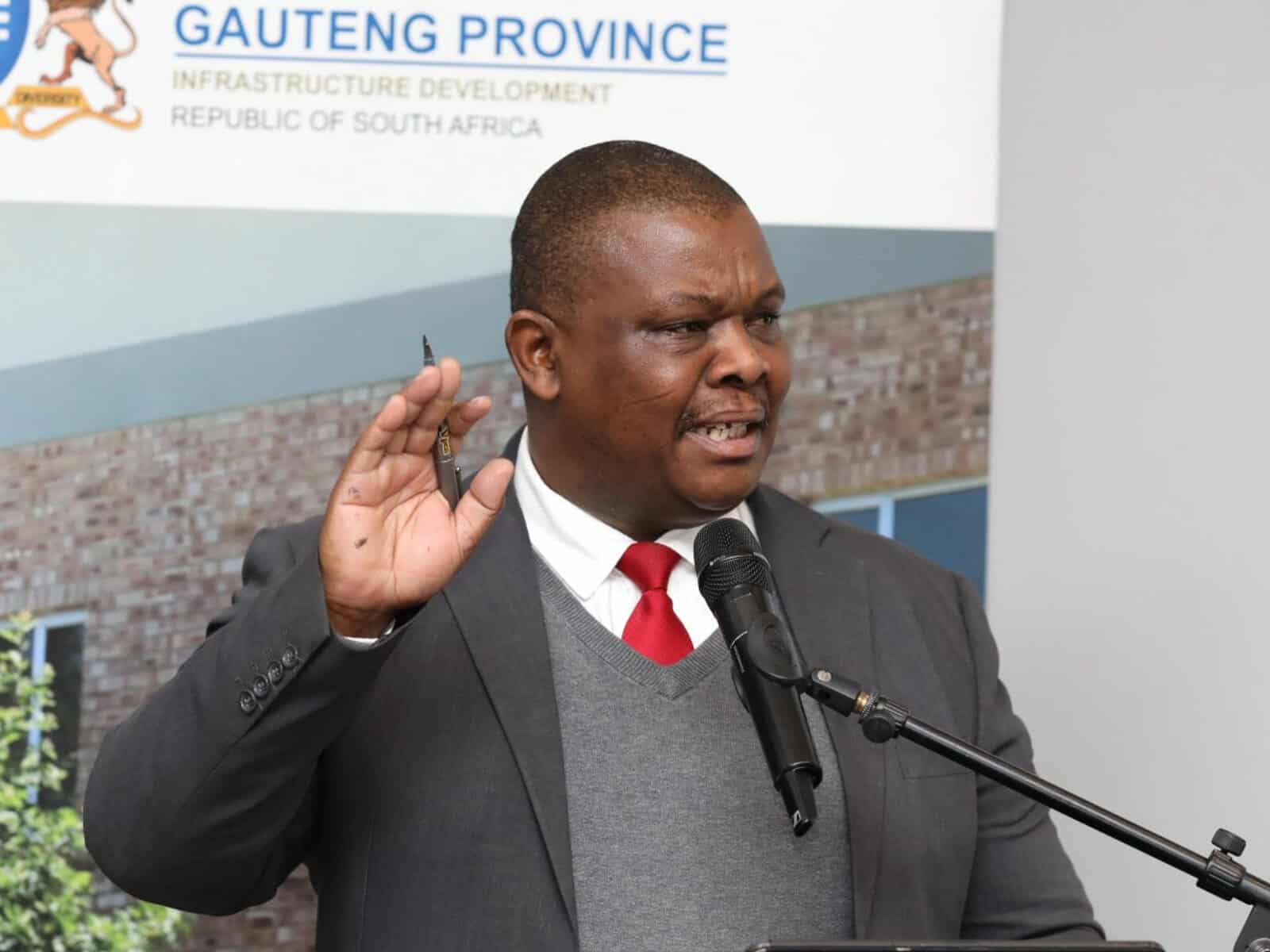Gauteng MEC for Infrastructure Development Jacob Mamabolo says an in-house governance tool is going to eliminate waste and slow projects.

Officials responsible for managing infrastructure projects in Gauteng got a pep-talk from senior management on Thursday.
MEC for Infrastructure Development Jacob Mamabolo addressed department project managers and officials in Sandton on how their work will be scrutinised in future.
The provincial infrastructure development department has over 200 projects in the procurement, implementation, design and planning pipeline that the MEC wishes to push to completion.
Collaborative problem solving
Present were officials from Corporate Governance and Traditional Affairs (Cogta) and the Gauteng Infrastructure Financing Agency (Gifa).
Also in the VIP seats was new head of department Rufus Mmultana, who was part of Premier Panyaza Lesufi’s reshuffle this week.
“We will cut more ribbons under your leadership,” said Mamabolo as he outlined his vision for how the entities should be streamlining workflows.
Cogta oversee municipal functions, Gifa assist in the funding of projects and the infrastructure department oversee the logistical challenges of building new public buildings.
Mamabolo stressed the importance of government entities working together to achieve the province’s wider turnaround strategy.
“The three spheres of government should integrate, should coordinate, should harmonise their work, should support each other, because the problems that we have, nobody can solve them alone.
“If we don’t deliver these productive assets to the people, we will not improve their quality of life and we will not grow the economy,” said Mamabolo.
In-house governance tools
To achieve this goal, the MEC said he wished to “change delivery architecture” using the Infrastructure Delivery Platform (IDEP) and Project Readiness Matrix (PRM).
These are tools developed by the department that track each phase of government infrastructure projects.
The IDEP has three key facets; a portfolio of risk, a portfolio of evidence and data analytics that package the data into a neat interactive interface.
Project managers and dedicated verification teams sent to sites are required to submit weekly data to track the progress of projects.
Using the weekly data, the department aims to reduce supply chain turnarounds and procurement backlogs.
Combined with invoices from contractors, the department is able to accurately gauge progress as well as expected expenditure.
“When you say we are making progress, we need to see it as well. If you try to cook the books, the portfolio of risk will tell us. If you try to cook the books, portfolio of evidence will tell us.
“If you try to manipulate data, our A team when they go to the ground will tell us. You can’t beat the system,” the MEC stated.
‘Accounting for every cent’
The success of the system will be seen in how the department addresses its current workload.
The department has 30 projects in the close-out phase and 62 in the procurement and implementation phases.
Additionally, 155 projects are in the planning and design phases, with 202 of the total number of pending projects being in the education and health sectors.
The IDEP and PRM will also assist service providers by warning them within weeks if they are behind schedule or if funding is becoming problematic.
“Many of our projects are not being completed because most of our service providers are battling the liquidity — cash to cost — problems,” said Mamabolo.
He advised the officials to focus on completion risks, which featured costs and time overruns, as “jobs were trapped in the pipeline” of poorly run contracts and projects.
“We need to make sure that municipalities become the best place of investment for local and international investors.
“We must also be the spending hub, by spending efficiently, effectively and accounting for every cent,” said the MEC.
‘Ecosystem’ set
Mamabolo in July announced a budget of R3.6 billion, and expressed his confindence in the new department head Mmutlana to successfully oversee the blueprint presented.
An agreement, that has yet to be signed by the officials, will outline the goals and milestones to be achieved, but Mamabolo said the “ecosystem” was set for implementation.
Mmutlana, former education head of department, was bullish over his prospects of meeting the MEC’s and the public’s expectations, saying he had the necessary staff and skills at his disposal.
“I believe as a department we are on the verge of taking off. Every strategy has gaps and we will identify these as we move,” said Mmutlana.
NOW READ: Joburg’s housing backlog needs R60bn and less red tape – Morero






